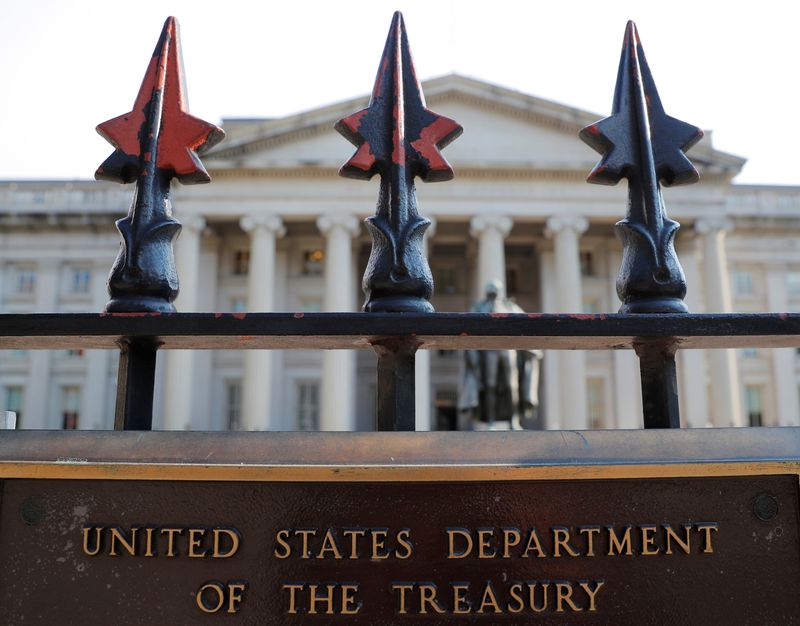(Reuters) -The U.S. Treasury said on Wednesday it will continue to assess whether or how to implement a program to buy back some of its existing bonds, a move partly aimed at improving liquidity in the Treasuries market.
Last month, as part of its regular survey of dealers before each of its quarterly refunding announcements, the Treasury asked dealers about the specifics of how buybacks could work.
These included questions on how much it would need to buy so-called off-the-run Treasuries, which are older and less liquid issues, to improve liquidity in those securities.
On Wednesday, it said it had not yet made any decision but that it would continue to meet with a variety of market participants to assess the costs and benefits of buybacks.
It expects to share findings as part of future quarterly refunding announcements, providing "ample notice" on any decision.
The Treasury's plans come as liquidity in the world's largest bond market has deteriorated this year, partly because of rising volatility as the Federal Reserve rapidly raises interest rates to bring down inflation.
The central bank, which had bought government bonds during the COVID-19 pandemic to stimulate the economy, is now also reducing the size of its balance sheet by letting its bonds reach maturity without buying more, a move which investors fear could exacerbate price swings.
A major constraint for liquidity - the ability to trade an asset without significantly moving its price - is the result of a rule introduced by the Fed following the 2008 financial crisis which requires dealers to hold capital against Treasuries, limiting their ability to take on risk particularly at times of high volatility, investors have said.

A source at a primary dealer said that buying back off-the-run securities would be a natural step to support liquidity and welcomed the plans as a sign of the Treasury's commitment to ensure normal market functioning.
“They will want to tread carefully," a second source at another primary dealer said. "What you don’t want is inserting the Treasury in any kind of unpredictable way into the behavior of the Treasuries market."